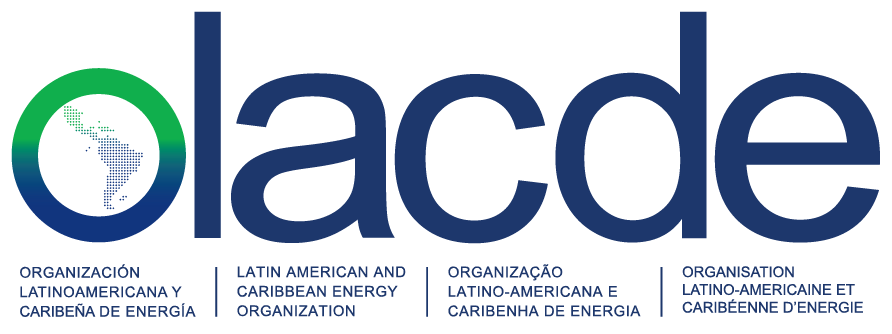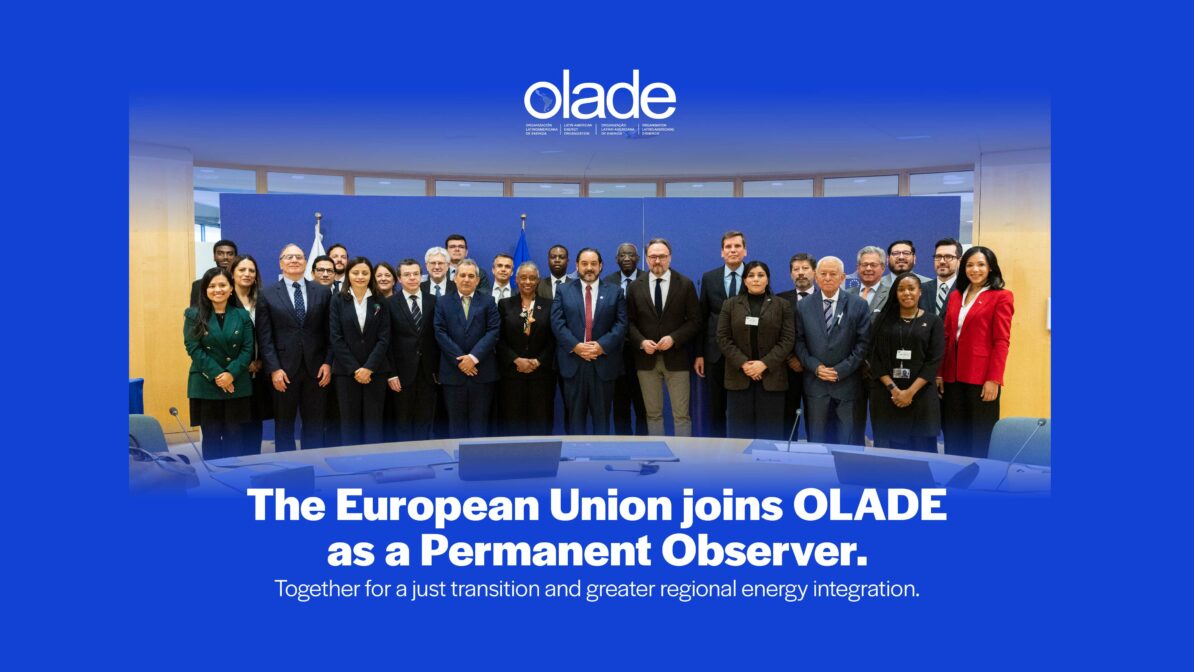A Memorandum of Understanding was signed between the European Union (EU) and The Latin American and Caribbean Energy Organization (OLACDE), under which the EU becomes a Permanent Observer to OLACDE.
This Agreement marks a significant step in strengthening international energy cooperation and reinforces the dialogue and joint efforts between both regions to accelerate decarbonization, promote clean technologies, ensure global energy security, and foster sustainable development between Europe, Latin America, and the Caribbean.
The agreement was signed by the Executive Secretary of OLACDE, Andrés Rebolledo Smitmans, and the EU Commissioner for Energy, Dan Jørgensen.

This strategic partnership aims to promote cooperation and work jointly to improve regional collaboration and the exchange of specialized knowledge in the energy sector across Latin America, the Caribbean, and the European Union, through the sharing of technical knowledge and best practices in the design of programs, projects, and other joint cooperation initiatives.
The EU’s observer status includes participation in OLACDE’s governance bodies and technical working forums, which will facilitate the joint development of technological innovation projects and sustainable public policies, taking into account the strategic role of energy and its impact on socioeconomic development, climate change, industrialization, and the improvement of the human development index in both regions.
The Agreement promotes energy cooperation to advance sustainable development in Latin America and the Caribbean, supporting the region’s current energy transitions toward a net-zero future.
According to a study conducted by OLACDE, bilateral trade between the EU and Latin America and the Caribbean in the energy sector has shown consistent growth, increasing from USD 10.887 billion in 2020 to USD 35.707 billion in 2023.
Latin America and the Caribbean have a positive energy trade balance with the EU, with exports three times higher than imports from Europe, in a context that supports technology transfer, investment in clean energy, and economic resilience in the face of the climate crisis.
While the region has made progress in transforming its energy sector, it still faces challenges linked to climate change, such as extreme weather events, pressure on energy infrastructure, and the urgent need to diversify a primary energy matrix that still relies heavily on hydrocarbons and hydropower.
In this context, the EU plays an important role. For over a decade, foreign direct investment (FDI) in renewable energy projects in Latin America has exceeded that in hydrocarbons, and today, European companies are responsible for around 70% of FDI in renewables in the region.
Finally, this alliance strengthens and supports the ongoing efforts of OLACDE and its member countries to advance regional energy integration, as the EU’s established experience in this area offers valuable insights for designing best practices in integration efforts.
Andrés Rebolledo noted that “the inclusion of the European Union as an observer is especially timely, as there are meaningful similarities between the two regions in energy matters, with shared challenges around security, efficiency, and integration, as well as the unavoidable transition to renewable energy as a response to the environmental crisis and ecosystem degradation.”
Commissioner Dan Jørgensen stated, “The EU and Latin America and the Caribbean are strengthening their partnership to drive green and digital transitions. The memorandum signed today aligns regional energy efforts and strengthens technical cooperation. Both regions are moving toward a clean and sustainable energy transition. The agreement supports our shared goals to triple renewable energy and double energy efficiency by 2030.”





